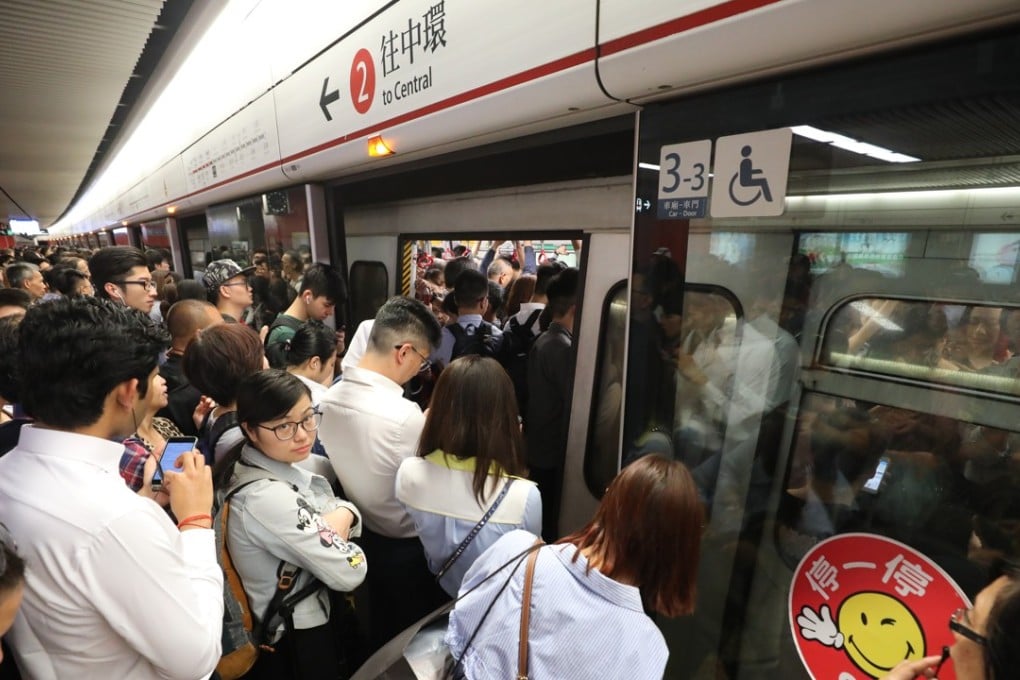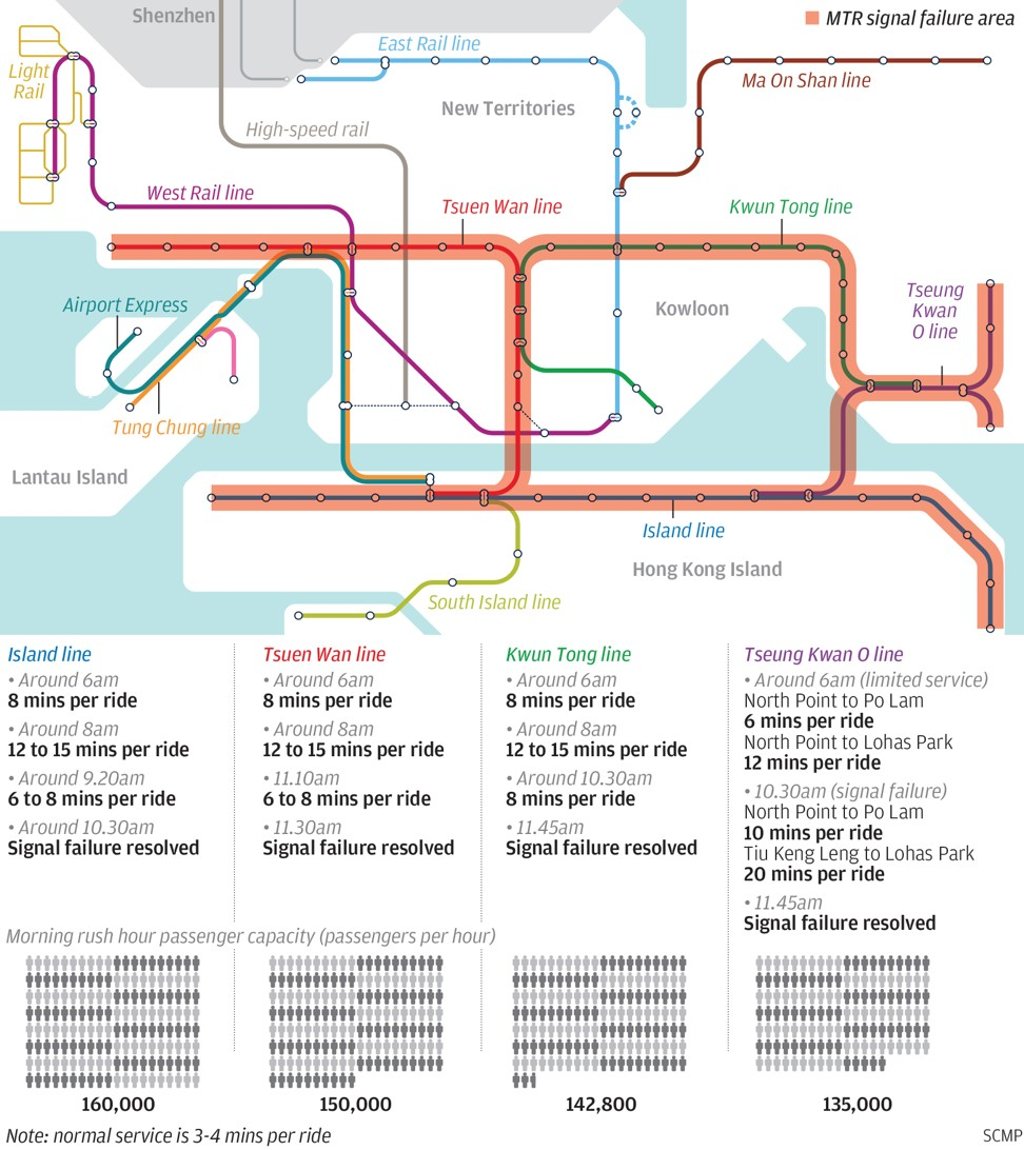Hong Kong MTR signal fault finally fixed after six hours of commuter chaos
Tseung Kwan O, Island, Tsuen Wan and Kwun Tong lines hit by severe delays, with knock-on effect on road traffic

More than six hours after a signalling fault on the train network sent Hong Kong into commuter chaos, the city’s rail operator announced that a temporary fix was in place and its four affected lines had resumed normal service.
At 11.45am on Tuesday, the MTR said trains were now running every four minutes.
An unprecedented four lines – the Island line, Tsuen Wan line, Kwun Tong line and Tseung Kwan O line – were hit by severe delays. The MTR called on commuters to use other forms of public transport after journey times were extended by 40 minutes on some of the routes.
MTR bracing itself for rush hour after normal service resumes
The transport operator first noticed the signalling failure at about 5.30am, affecting the Island, Tsuen Wan and Kwun Tong lines. Train frequency was reduced, and travel times were increased, leading to large crowds of waiting commuters at stations across the city.
At 9.25am, the MTR announced that normal train service was gradually resuming on the Island line as the issue there had been resolved. But at 10.18am, it said the Tseung Kwan O line had also broken down.
